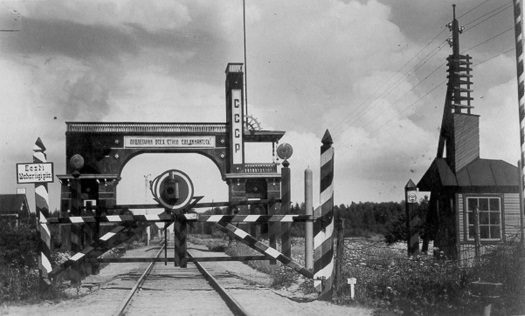
Weekly Story: Bein Hami’tzorim
by Rabbi Sholom DovBer Avtzon
As we are now in the time period that is referred to Bein Hami’tzorim, (the three weeks between the 17th of Tammuz and the 9th of Av), I decided to post a thought mentioned at a farbrengen last Shabbos.
The phrase bein hamitzorim is taken from the third possuk in Eicha, there the possuk states, kol rodfehuh hisigoohu bein hamitzorim – all those who chased her [i.e. the Jewish people] caught up to her, when she was between the borders/boulders [with no place to run].
The venerable mashpia, Reb Peretz Mochkin would explain this possuk with a different insight. The three letters for the root word of hisigoohu are hei, sin, and gimmel, which are also the root letters for the word hasuguh, which means understanding it. So perhaps a hidden message in this possuk is: All those who chased, mocked and ridiculed us, understood their mistake in times of constraints.
He then explained, When the Rebbe Rashab established Tomchei Tmimim, there were many other yeshivos, which were successful and brought out the best in their students. Yet the Rebbe Rashab opened his yeshiva, and made a drastic change in its schedule. He took away four hours a day from learning the Gemorah with its commentaries and the study of Shulchan Aruch and replaced it with four hours of learning Chassidus.
So instead of following the regular schedule of twelve hours a day focused on nigleh (gemorah etc.), he set aside only eight hours for nigleh and the remaining four was dedicated for Chassidus. People questioned the need for this and if it was indeed proper.
However, when the communists took over and the Jews in Russia were caught in their constraints, only then did everyone recognize the tremendous benefit of this change. As a group, it was only his students, the Temimim, that were able to maintain a level of observance.
I heard from someone a similar note. He said, when his family was in the DP camp of Poking, Germany, all the groups were given their own section or block.
On Simchas Torah, his father wanted to see what is happening. How is everyone going to celebrate today? Understandable, the atmosphere was not bubbling with excitement. People were wondering and concerned about their extended family and community. Did they too miraculously survive, or chas v’sholom not? For many there wasn’t anything to celebrate. Their hakkafos were subdued and concluded in short fashion.
But my father said, to his surprise and perhaps shock, when he came to the row where the Chabad-Lubavitch chassidim were set up, he heard singing coming from the makeshift shul. Entering the shul, he saw chassidim singing and dancing.
At that point, he decided that for the future chinuch of his family, he will join them. Everyone went through the horrendous times and no one is to be blamed for their feelings. But somehow, by them – the Lubavitchers – they are able to transcend the situation, and be joyous nonetheless.
We also see this clearly nowadays.
Some of the biggest supporters of the Rebbe’s shluchim, especially in far flung places are Jews who are not Lubavitchers. Yet they marvel at how can someone, and not just one or two outstanding individuals, but hundreds and hundreds of young men and women, raise their families in isolated places, bereft of any formal environment of Judaism. And yes, some of these supporters used to question (and perhaps even criticize) the ways of Lubavitchers.
But in those “bein hameitzarim,” – difficult areas – people recognize the accomplishment of Chassidus and being connected to the Rebbe.
However, we should recognize, that even us who are living in established Jewish communities, we too are living in “bein hameitzarim.” We too are living in extremely difficult times. And the same ingredient that elevates those chassidim and shluchim, can elevate us.
By learning the Rebbe’s teachings, whether it be a sicha, maamar or his letters, and by being connected to him, by learning Chitas and Rambam and living with the mivtzoyim, we too can and will elevate ourselves above the constraints of these difficult times.
We will then merit tzion b’mishpat tipudeh, v’shuvei’ah b’tzedokah, with the coming of Moshiach and the building of the third beis hamikdash, may it actually be speedily in our days.
P.S. I appreciate your feedback, however, Reb Yakov I can’t respond to your question on last week’s story, as I didn’t receive your email address.
Rabbi Avtzon is a veteran mechanech and the author of numerous books on the Rebbeim and their chassidim. He is available to farbreng in your community and can be contacted at avtzonbooks@gmail.com










